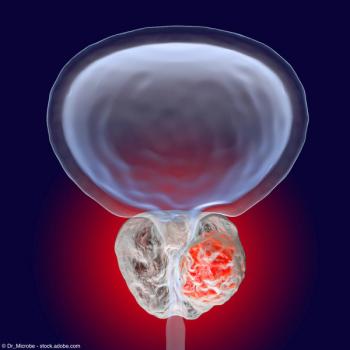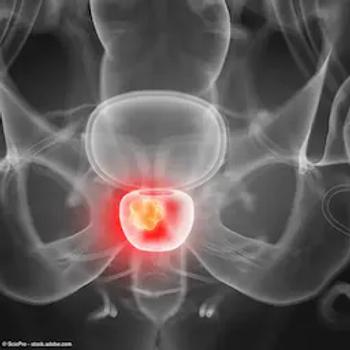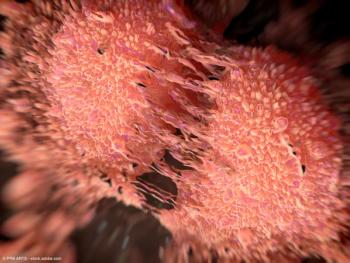
Dean S. Elterman, MD, MSc, FRCSC, highlights several studies in BPH being presented at the 2024 AUA Annual Meeting.

Dean S. Elterman, MD, MSc, FRCSC, highlights several studies in BPH being presented at the 2024 AUA Annual Meeting.

"And [3 out of 5] of those patients who were initially deemed to go on to nephroureterectomy were able to be converted to endoscopic management," says Surena F. Matin, MD.

Adam B. Weiner, MD, highlights several studies in prostate cancer set to be presented at the upcoming 2024 American Urological Association Annual Meeting.

"Within this paper, we discussed the importance of conservative management and lifestyle modifications as initial steps in managing BPH," says Eiftu S. Haile, MD.

In this final iteration of a 3-part series, Shawn H. Marhamati, MD, MS, shares initial insights into benefits of Aquablation in an ASC environment.

Karine Tawagi, MD, highlights several studies in bladder cancer being presented at the 2024 American Urological Association Annual Meeting.

"Alpha-blockers are often, for patients, the first line of treatment because they help quickly relax the smooth muscles in the bladder and the prostate," says Eiftu S. Haile, MD.

"For those who do enucleations, I think I would encourage people to highly consider adopting an apical release technique if they haven't," says Daniel J. Heidenberg, MD.

"Prostate radiotherapy is obviously widely available, inexpensive, generally [with] a mild toxicity profile. So I think it's a reasonable option in that scenario in patients who present with de novo low-volume disease," says , Scott Morgan, MD, MSc, FRCPC.

"The advance of PSMA imaging has put an emphasis on multidisciplinary care," says Kenneth J. Pienta, MD.

In this second iteration of a 3-part series, Shawn H. Marhamati, MD, MS, highlights the experiences and data that supported the trial of Aquablation in an ASC setting.

"I think that this field is going to continue to evolve, especially when we think about how to incorporate PSMA-PET findings into our clinical care," says Todd M. Morgan, MD.

"I think the greatest implication the study has is that it tells us that family history and germline genetics independently provide complementary information that's important for risk stratification of localized prostate cancer," says Keyan Salari, MD, PhD.

"We can also look at the timing of exposure to urology. Does early exposure spark interest in urology, or does delayed introduction to the field hinder the consideration of the specialty?" says Ashley Appleton.

"In my view, at present in patients that have low-volume oligometastatic de novo metastatic prostate cancer, it's really an unknown whether comprehensive SBRT or other local therapy directed at oligomets improves survival," says Scott Morgan, MD, MSc, FRCPC.

In this first video of a 3-part series, Shawn H. Marhamati, MD, MS discusses a pilot trial of Aquablation in an ASC setting and highlights the benefits of the therapy.

"A key piece of the guideline is that we need to offer radiation at a PSA of 0.5 ng/mL or lower and maybe even, for some patients, a PSA lower than 0.2 ng/mL," says Todd M. Morgan, MD.

"In terms of the minimal overlapping toxicity, our non-clinical data from the xenograft model showed minimal toxicity with the combination," says Caroline Foxton, PhD.

"What we found is that over a third of patients, 36%, had positive family history of either prostate, breast, or pancreatic cancer. And if you had this type of a family history, there was nearly a two-fold risk of dying of prostate cancer in the long term," says Keyan Salari, MD, PhD.

"In our analysis, the highest ranked treatment strategy was the combination of standard of care systemic therapy, an AR pathway inhibitor, and prostate radiotherapy," says Scott Morgan, MD, MSc, FRCPC.

"I don't think anybody, at least in our Mayo Clinic practices, is ever doing anything other than apical release HoLEPs these days," says Daniel J. Heidenberg, MD.

“The da Vinci 5, or DV5, system is the next evolution of robotic surgery,” says Jaschar Shakuri-Rad, DO, FACOS.

"I think the main question is just how to disseminate this information. Obviously, there's a huge need," says Megan S. Bradley, MD.

"Participating in AUA guidelines is really an exciting time," says Todd M. Morgan, MD.

"At the medical student level, we can provide early exposure to urology to make sure that these students feel properly equipped to apply to urology when that time comes and get adequate exposure to the field," says Ashley Appleton.

"But I think that this really showed us that the outcomes were substantially better than I think any of us were thinking," says Daniel J. Heidenberg, MD.

"We found that only about 8% of people in this national survey of over 500 participants had heard of asymptomatic bacteriuria," says Megan S. Bradley, MD.

“In the preclinical space, we continue to be interested in trying to understand the mechanistic underpinnings of these combination therapies,” says Kent W. Mouw, MD, PhD.

"There have been some pivotal clinical trials that have reported out, and they've really showed us that there is limited to maybe no role for adjuvant treatment after prostatectomy, and there is a huge role for early salvage treatment," says Todd M. Morgan, MD.

"We found that in order to reach racial and ethnic parity in the urology residency graduates, there needs to be an increase of these graduates by 0.845% per year," says Ashley Appleton.